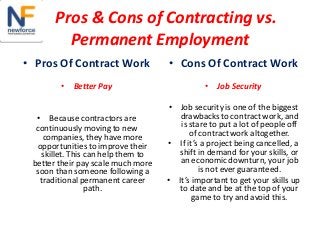
If your organization relies on critical infrastructure to operate, you may benefit from a cyber security assessment. These assessments examine organizational resilience, cybersecurity practices and management of external dependencies. These assessments are provided at no cost to your organization and can improve security.
Red-teaming
Companies can use red-teaming to assess their cyber security and better understand the protection they have against cyberattacks. These teams mimic real-world attackers with proprietary and open source intelligence tools. They then use these tools to perform reconnaissance and attack simulations. In some instances, the teams will use social engineering techniques to gain access to data and network resources. They will then use social engineering techniques to increase their privileges and establish command and control infrastructure.
Red-teaming is expensive so be sure to budget in advance. A full-spectrum simulated attack can cost a lot, especially if it involves physical intrusion and social engineering. It is also important to decide how high of a risk you can bear before hiring a red-team. Different companies have different risk tolerances.

Penetration testing
Penetration testing can be a vital component of a cybersecurity assessment. It involves the use automated tools to attempt exploit security vulnerabilities. The goal of penetration testing is to gain access the target information as well as valuable data. Permission tests are performed only if the target system and its applications are well understood. Penetration testing is not only limited to external attacks. This misconception has been addressed by security researchers who have produced a webinar and a post.
Penetration testing involves the use of automated and manual techniques to uncover weaknesses in systems and networks. Internal and external penetration tests are essential to ensure security in an organization. Penetration testing can help determine if an attacker could do malicious acts on the network. An independent red team can conduct these tests to determine the existence of vulnerabilities and how effective controls and defenses are in place.
Configuration testing
Security assessments are an important step to identify vulnerabilities in an organization's IT environment. This involves mapping access control points and services to determine weaknesses and the potential for security breaches. This process also detects missing security patches. After the assessment, you will be able to determine what steps are needed to fix security gaps.
CSAs are typically carried out by teams of cyber professionals. Many of these professionals are former UK Government Cyber Operations Specialists and have extensive knowledge regarding security vulnerabilities. The testing teams will typically include at least one CISSP certification holder, as well as bespoke cyber technical certifications.

Social engineering
Companies need to be prepared for social engineering attacks. Your vulnerabilities are the best defense, especially in emails. You should always investigate unsolicited communications to make sure that they are legitimate and do not contain viruses or other malicious code.
A social engineering cyber security assessment is an important tool for any organization to help identify potential vulnerabilities and take measures to mitigate these risks. These assessments can include detailed analysis of online information that may pose a threat. This assessment may also include simulations to assist employees in avoiding being the target of a scam.
FAQ
What type of contracts are available to consultants?
Most consultants sign standard employment agreements when hired. These agreements detail the length of the consultant's contract with the client, the amount he/she is paid, and other important details.
Contracts specify the area of expertise that the consultant will specialize in and the amount they will be paid. For example, the agreement may say that the consultant will provide training sessions, workshops, webinars, seminars, etc.
Sometimes, the consultant simply agrees that a specific task will be completed within a set time frame.
Consultants often sign independent contractor contracts in addition to their standard employment agreements. These agreements allow the consultant not only to work for himself/herself but also provide payment.
What industries employ consultants?
There are many different types of consultants. There are many types of consultants. Some specialize in one type of business, while others can handle multiple areas.
While some consultants only work for private companies, others represent large corporations.
And some consultants work internationally, helping companies all over the world.
Who hires consultants
Many organizations employ consultants to assist in projects. These can include small businesses and large corporations, government agencies as well non-profits and educational institutions.
While some consultants work for these companies, others are freelancers. In both cases, the process for hiring depends on how complex and large the project is.
You will likely go through multiple rounds of interviews when hiring consultants before you choose the candidate you feel is the best fit for the job.
How much do consultants make?
While some consultants may make over $100k per annum, most consultants earn between $25k and $50k. A consultant's average salary is $39,000 This applies to both hourly and salaried consultants.
Salary depends on the experience of the consultant, their location, industry, type and length of the contract (contractor or employee), as well as whether they have their own office or work remotely.
Can anyone become a consultant
Consultants are people who help you reach your goals by giving advice about how to make it better, faster, or cheaper.
A consultant can help you solve problems, make decision, or negotiate with people.
Consultants can be hired to assist with specific tasks or projects.
Actually, most consultants get paid hourly and daily rates, rather than per-project.
What skills are necessary for consulting?
Strong interpersonal and analytical skills are essential for consultants. This is vital because you may not understand the scope of your work. You need to be able to manage people quickly and solve problems efficiently.
You also need to have excellent communication skills. Clients expect a response within 24 hours. If they don’t hear back, they assume that you aren’t interested. It's important, therefore, to always keep them informed and ensure they understand what is going on.
What is the difference between a consultant and an advisor?
An advisor provides information about a topic. Consultants offer solutions to problems.
Consultants work directly for clients to help achieve their goals. An advisor advises clients indirectly through books, magazines, lectures, seminars, etc.
Statistics
- According to statistics from the ONS, the UK has around 300,000 consultants, of which around 63,000 professionals work as management consultants. (consultancy.uk)
- So, if you help your clients increase their sales by 33%, then use a word like “revolution” instead of “increase.” (consultingsuccess.com)
- "From there, I told them my rates were going up 25%, this is the new hourly rate, and every single one of them said 'done, fine.' (nerdwallet.com)
- WHY choose me: Why your ideal client should choose you (ex: 10 years of experience and 6-week program has helped over 20 clients boost their sales by an average of 33% in 6 months). (consultingsuccess.com)
- 67% of consultants start their consulting businesses after quitting their jobs, while 33% start while they're still at their jobs. (consultingsuccess.com)
External Links
How To
How do I find a good Consultant?
It is important to understand what you are looking for in a consultant before you can find one. Do you want them to help you improve your website's performance? Do you need them to optimize your site so that it ranks higher in search engines' results? Or perhaps you just want someone who can tell if there are any issues with your current hosting provider. After you have decided what services you need, it is time to start looking at potential companies. While there are many consultants that claim to be able provide these services for you, not all of them will. How do you choose the right consultant? Here are some considerations when choosing a consultant.
-
Get referrals. Referring to other consultants is the best way of choosing a consultant. Because you are likely to pay too much, you shouldn't hire someone who you have never heard of. You don't want to work alongside someone whose reputation hasn't been established. You're fortunate enough to receive referrals from people you trust. But even if you don't, you still might be able to check reviews online. Check for testimonials or case studies that show how clients have used your services.
-
Ask around. Many people don’t know that they could gain from consulting. They believe that because they're doing well, they don’t need to make any changes. However, this is usually untrue. Even if you are seeing great results, it is likely that you have not been keeping up to date with technology and trends. You'll lose out on the opportunities to grow your company if you rely on old methods. It's worth asking your friends and family for recommendations to help you find the right consultant.
-
Make sure to verify their qualifications. You need to verify their qualifications when you are searching for a consultant. You must ensure they have the necessary skills and qualifications to carry out the tasks.
-
Find out about the types of projects they specialize. You might think that everyone can handle all projects, but this is false. Some areas require specific education or training. If you are looking for someone to create a WordPress theme, then you will not want to hire someone who isn't a specialist in Drupal. Graphic design and programming languages are all subject to the same rules. Ask the designer what kind of projects they have worked on in the past.
-
Be aware of their fees. As we stated, you don’t want to pay too little for a consultant. You don't necessarily want to pay too low, but you shouldn't either. Consultants come in all shapes and sizes. There are some that charge an hourly fee, while others may bill per job. This will help you save money in the long-term.
-
Learn what they offer. Are they available for free consultations Are they willing to give advice about how to set up your own system or provide other assistance? Is it possible to be sure that your site ranks higher when you work with them You have the right to cancel at any time if you aren't satisfied with what was said during your consultation.
-
Finally, find out if they offer discounts for multiple months or years. Many consultants offer discounted pricing for extended time periods. While you don't necessarily need to commit for a whole year, you can still take advantage of any deals that they offer.